ERC Grants: 19 million euros in 10 years for researchers in Ticino
Institutional Communication Service
The European Research Council (ERC) was established in 2007 by initiative of the European Commission, as part of the Seventh Research Framework Programme (FP7), with the mission to encourage excellent frontier research in Europe through competitive funding (ERC Grants), supporting top researchers across all fields and of any nationality, including those from non-member countries such as Switzerland.
The Italian-speaking part of Switzerland, where 13 ERC Grants have so far funded research projects with over 19 million euros, is pleased to mark the 10th anniversary of the ERC, from March 13 to 19, an important milestone in making Europe a centre of excellence in research.
The ERC program, with more than 7.000 grantees (including 6 Nobel Prize winners, 3 Fields Medals, and 5 Wolf Awards), over 90,000 publications and hundreds of important discoveries for the advancement in the medical, industrial and social fields, has had a considerable impact on the European research landscape. A true success story affecting also Switzerland: to date, almost 500 Grants have been awarded, for over 900 million euros.
In Ticino
In Ticino, ERC-funded research is conducted mainly in the fields of biomedicine, natural sciences and engineering, with projects ranging from immunology to cancer treatments, from genomics to computational science. Grantees are researchers who operate in several institutions in the region: at the Institute of Computational Science (Faculty of Informatics, USI), at the Institute for Research in Biomedicine and the Institute of Oncology Research (IRB, IOR, both affiliated to USI), and the Dalle Molle Institute for Artificial Intelligence (affiliate to USI and SUPSI).
ERC Grants
ERC Grants are defined by their “bottom-up” approach: they are open to any discipline of any scientific field, with no pre-defined topics, nor thematic priorities. Scientific excellence is the sole criterion: support is provided either to promising or to already established excellent researchers of any nationality with an outstanding track record. Projects must be innovative, high-risk/high-gain, curiosity-driven. This excellence-based approach allows scientists to follow unexplored paths, come up with challenging, bold research questions, conduct “risky” studies having groundbreaking potential, which could not be funded otherwise.
There are four types of ERC Grants:
- Starting Grants (awarded to promising and talented young researchers with 2 to 7 years of experience after completion of their PhD)
- Consolidator Grants (awarded to outstanding researchers with 7 to 12 years of experience after completion of their PhD)
- Advanced Grants (awarded to already established research leaders, with a recognised track-record of research achievements)
- Proof of Concept Grants (for current grantees wishing to explore the innovative potential of their project).
ERC grantees in Ticino
ERC grantees in Ticino so far, divided by type and with indication of the research topic, are:
Starting Grant
- Andrea Alimonti, USI IOR Institute of Oncology Research; cancer therapy
- Michael Bronstein, USI Faculty of Informatics, Institute of Computational Science; computer vision, pattern recognition;
- Fabrizio Grandoni, USI-SUSPI Dalle Molle Institute for Artificial Intelligence Research; algorithmic and analytical tools
Consolidator Grant
- Andrea Alimonti, USI IOR Institute of Oncology Research; cancer therapy
- Michael Bronstein, USI Faculty of Informatics, Institute of Computational Science; deep learning
- Petr Cejka, USI IRB Institute for Research in Biomedicine; DNA, genome, genetics
Advanced Grant
- Antonio Lanzavecchia, USI IRB Institute for Research in Biomedicine; immunology, vaccines (progetto IMMUNExplore)
- Antonio Lanzavecchia, USI IRB Institute for Research in Biomedicine; immunology, vaccines (project BROADimmune)
- Michele Parrinello, USI Faculty of Informatics, Institute of Computational Science; atomistic simulations, metadynamics (progetto PUSHBOUND)
- Michele Parrinello, USI Faculty of Informatics, Institute of Computational Science; variational metadinamics (project VARMET)
- Matteo Prato (co-grantee), USI Faculty of Economics / University of Warwick; sociological approach to study the social properties of cognition;
- Federica Sallusto, USI IRB Institute for Research in Biomedicine; immunity and immunopathology
Proof of Concept
- Michael Bronstein, USI Faculty of Informatics, Institute of Computational Science; augmented video content
For further information:
Prof. Benedetto Lepori, head of Research Service USI/SUPSI
email benedetto.lepori@usi.ch
tel +41 58 666 46 14




